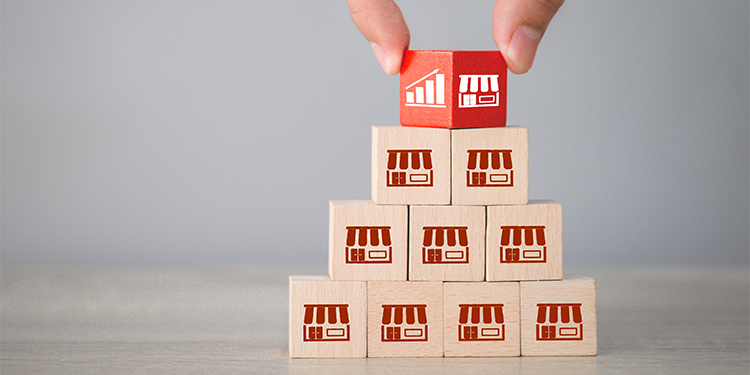
Choosing Between Franchise and Independent Business
Deciding between starting your own independent business or becoming a franchise owner involves weighing risks and rewards. Before leaping into site selection for your startup or committing to franchise ownership, make a checklist. Entrepreneurs should take time for due diligence and make an informed decision. After all, that decision can make a big difference in the overall entrepreneurial journey.
What Is a Franchise?
A franchise is a business arrangement where one business owner (the franchisor) grants another party (the franchisee) the right to operate a business using its brand, trademarks, and proven business model. Buying into a franchise network has several benefits, including access to an established brand and customer base. These networks also provide ongoing support and training programs from the franchisor, and franchisees benefit from the collective buying power that supports marketing strategies. Franchise opportunities can be less risky for small business owners, and they provide a pathway to entrepreneurship with built-in guidance and support.
What’s the Difference Between a Franchise and an Independent Business
The main difference between a franchise and an independent business lies in the level of control, support, and brand recognition. Franchises operate under an established brand and business model, receiving ongoing support from the franchisor, while independent businesses have complete autonomy but must build their brand and operational systems from scratch.
When choosing between a franchise and an independent business, new business owners should consider trade-offs in operational structure, support systems, and development requirements based on their preferences and goals.
Personal Autonomy vs. Structured Operations
- Franchise Business: Operates within an established business plan set by the franchisor, offering less autonomy, but benefiting from its proven track record.
- Independent Business: Be your own boss with complete control in decision-making, real estate, and operations, but remember that it takes time to develop supply chain logistics and marketing strategies to grow your business.
Support Systems
- Franchise Model: Provides ongoing support, training, and marketing assistance from the franchisor, leveraging the franchise brand name and other resources.
- Independent Business: Relies solely on internal resources and professional networks, requiring self-sufficiency in managing all aspects of the business.
Development Requirements
- Franchise Business: Requires adherence to brand name standards, including operations, and customer experience, often with initial and ongoing fees.
- Independent Business: Involves developing and executing all aspects of the new business, from branding to operations, without predefined guidelines or brand awareness.
Pros and Cons
Pros of Franchising Over Independent Business
- Established Brand Recognition: Benefit from existing brand awareness and customer loyalty. This often translates to lower risk if your franchise location has high traffic and it is a reputable, trusted brand.
- Proven Business Model: Use a successful and tested business framework.
- Ongoing Support and Training: Receive continuous support, training, and guidance from the franchisor.
- Collective Buying Power: Access economies of scale discounts on supplies and equipment.
Pros of Independent Business Over Franchising
- Greater Autonomy and Flexibility: Independent business owners retain control over business decisions and operations.
- No Franchise Fees or Royalties: Keep all profits without paying franchise fees or ongoing royalties.
- Opportunity for Higher Profit Margins: Potential for higher earnings due to lower overhead costs and fees.
- Creative Freedom: Ability to innovate and implement unique ideas without franchise restrictions.
Cons of Franchising
- Initial Investment: High upfront costs, including franchise fees and startup expenses.
- Lack of Full Control: Limited autonomy in decision-making and operational flexibility.
- Contractual Obligations: Bound by franchise agreements and restrictions imposed by the franchisor.
- Royalty Payments: Ongoing royalty fees based on sales or profits, reducing overall profitability.
Cons of Independent Businesses
- Brand Recognition Challenges: Building brand awareness and credibility from scratch.
- Operational Uncertainty: No predefined business model, requiring development and testing of systems.
- Limited Support and Resources: Reliance on internal expertise and networks for support.
- Higher Risk of Failure: Increased risk due to market uncertainties and lack of established systems and processes.
Cost to Buy a Franchise vs. an Independent Business
The cost to buy a franchise typically includes an initial franchise fee, which can range from tens of thousands to hundreds of thousands of dollars, depending on the brand and business type. Franchisees also pay ongoing royalties and marketing fees. In contrast, starting an independent business may have lower upfront costs, mainly consisting of startup expenses like equipment, inventory, and marketing. However, ongoing operational costs and the need to build brand recognition can increase long-term expenses.
Financing Benefits of Each Business Model
Securing a business loan for your type of business varies based on factors like access to capital, risk tolerance, and financial flexibility. Franchises often benefit from easier access to funding due to established relationships with lenders familiar with the brand's business model, leading to higher approval rates for loans. Additionally, franchises are perceived as less risky by lenders due to proven business models and brand recognition. Franchisees also benefit from shared marketing costs, with franchisors contributing to national or regional marketing efforts, reducing individual franchisee marketing expenses.
In contrast, independent businesses have more flexibility in negotiating financing terms and exploring creative funding options. They avoid ongoing royalty payments and costly upfront franchise fees, enabling greater control over cash flow and capital allocation. However, this autonomy comes with the responsibility of building brand recognition and operational systems from scratch, which can require a more resourceful approach to securing financing.
Success Rate of Each Business Model
The success rate of each business model varies based on factors such as industry, market conditions, and individual management. Franchises generally have a higher success rate due to established brand recognition, proven business models, and ongoing support from the franchisor. Independent businesses face greater challenges in brand building and operational development but offer more autonomy and flexibility. Success often hinges on strategic planning, market research, and effective execution of business strategies in both models.
To look for entrepreneurship opportunities, search BizQuest's listings of businesses for sale or check out our Franchise Directory.





